
-
Find the right food for your petTake this quiz to see which food may be the best for your furry friend.Find the right food for your petTake this quiz to see which food may be the best for your furry friend.Featured products
 Hill's Science Diet Adult 7+ Senior Vitality Small & Mini Chicken & Rice Recipe Dog Food
Hill's Science Diet Adult 7+ Senior Vitality Small & Mini Chicken & Rice Recipe Dog FoodImproves everyday ability to get up & go
Shop Now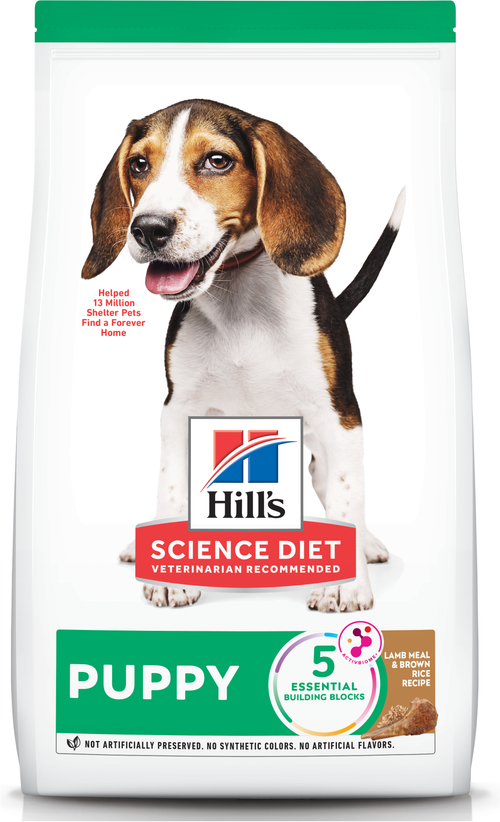 Puppy Lamb Meal & Brown Rice Recipe
Puppy Lamb Meal & Brown Rice RecipeVital nutrients to support 5 essential building blocks for lifelong health
Shop Now Puppy Large Breed Chicken & Brown Rice Recipe
Puppy Large Breed Chicken & Brown Rice RecipeVital nutrients to support 5 essential building blocks for lifelong health
Shop NowFeatured products Adult Sensitive Stomach & Skin Cat Food
Adult Sensitive Stomach & Skin Cat FoodHighly digestible food that is gentle on the stomach. Nourishes skin & promotes lustrous fur.
Shop Now Adult Indoor Chicken Recipe Cat Food
Adult Indoor Chicken Recipe Cat FoodSupports energy level and beautiful fur in indoor cats
Shop Now Adult 7+ Chicken Recipe Cat Food
Adult 7+ Chicken Recipe Cat FoodSupports energy level and beautiful fur in mature cats
Shop Now -
Dog
- Dog Tips & Articles
-
Health Category
- Weight
- Food & Environmental Sensitivities
- Urinary
- Digestive
- Joint
- Kidney
-
Life Stage
- Puppy Nutrition
- Adult Nutrition
Cat- Cat Tips & Articles
-
Health Category
- Weight
- Skin & Food Sensitivities
- Urinary
- Digestive
- Kidney
-
Life Stage
- Adult Nutrition
Featured articles Pet Food Storage Tips
Pet Food Storage TipsDiscover how and where to store your dry, as well as canned, dog and cat food. Learn how to find the "best before" dates on all Hill's pet food packaging.
Read More Water
WaterDiscover why water is the most important nutrient for your dog or cat to live a healthy life. Find out how much water your pet should consume each day.
Read More The Incredible Science Behind Your Pet's Microbiome
The Incredible Science Behind Your Pet's MicrobiomeLearn what a pet's microbiome is, how it contributes to your pet's gut & overall health, and why nutrition is important in maintaining healthy microbiomes.
Read More -


Few things can disrupt the harmonious bond you have with your dog like urinary issues. When your house-trained adult dog uses your house as his personal toilet, you may think he's doing it out of spite and that he needs to be scolded for his wrongdoing. But the truth is that inappropriate urination in dogs is often beyond their control and usually has an underlying cause that has nothing to do with bad behavior.
Why Your Dog Might Be Going in the House
A number of reasons could account for why your dog is peeing inside the house. It could be something as simple as he's drinking too much water and needs to go more often than he's able to go outside. It's possible that he simply hasn't been adequately house-trained. It's a tricky lesson to emphasize to your pet that he must do his business outside — and only outside! House training may be more difficult when you allow your dog to sometimes relieve himself in a designated area indoors, on a puppy training pad, for example. It's easy for dogs to become confused about what's appropriate.
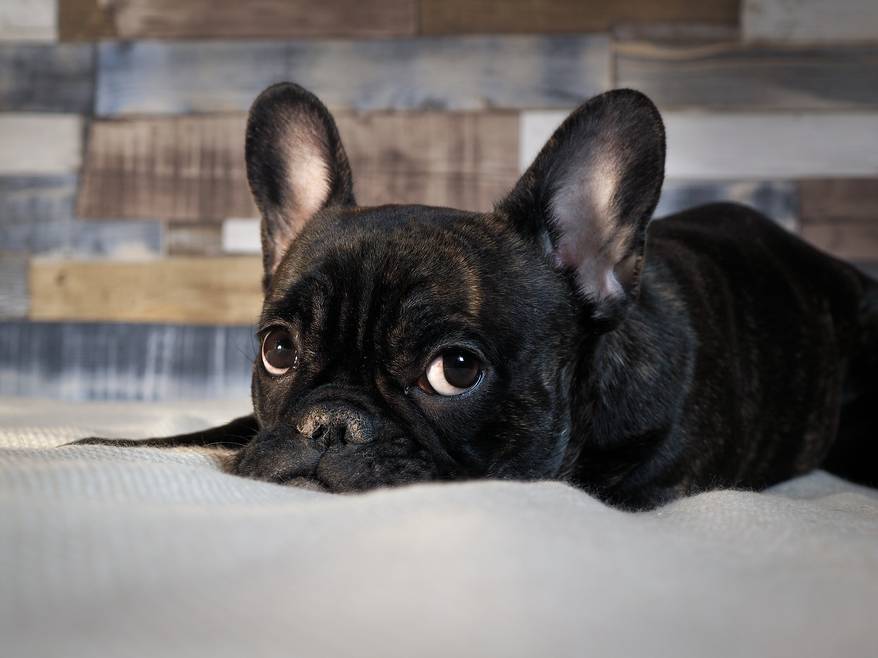
It's also possible that your pup is marking his territory indoors. This usually happens with non-neutered male dogs, and sometimes the behavior stops once the dog is neutered. Neutered males and spayed females may engage in this behavior from time to time, especially if they feel threatened by the arrival of another pet.
It's not uncommon for urinary issues in dogs to signal a deeper psychological issue, such as anxiety. In addition to the above, the following possibilities could be reasons why your dog might be urinating inside the house:
- Over-Excitement: Although losing bladder control because of excitement is more common with puppies and is something that most dogs outgrow, some dogs retain this tendency well into adulthood.
- Submission: Some urinate as a sign of submission to other dogs or animals, and even sometimes to humans.
- Anxiety or Fear: Going indoors might be a response to any number of fearful stimuli or anxieties. If your dog is going in the house while home alone, this could be a sign of separation anxiety. There could be something in your dog's environment, such as a loud noise, that is making your dog fearful of going outside.
- Change in Environment: If you recently moved and your dog's environment has changed, he might not necessarily associate the new place with being off-limits to relieving himself. In this case, it might require some extra potty training to help him understand that your new place is still considered indoors, and he must do his business outdoors.


Tasty Tips
Health-Related Urinary Issues in Dogs
Of course, if a properly house-trained and well-adjusted adult dog suddenly begins urinating indoors, there's a good chance that the urinating is a symptom of an underlying health issue. Some conditions may cause a dog to involuntarily lose control of the muscles in his bladder, while other conditions, such as certain infections and diseases, may increase the frequency and urgency of urination. Here is a list of potential medical causes of urinary issues in dogs:
- Diabetes
- Pain when squatting or lifting the leg to urinate
- An infected bladder or urinary tract
- Bladder stones
- Kidney or liver disease
- Tumors
- Cushing's or Addison's disease
- Adrenal gland issues
- Intestinal parasites
- Cognitive problems caused by brain disease or dementia
- Age-related illnesses and conditions
What You Should Do
If your dog starts going in the house, the first thing you should do is have him examined by a veterinarian to rule out any potentially serious underlying health concerns. If it turns out that your dog is suffering from a health condition, chances are that once the condition is treated he'll stop relieving himself inappropriately.
However, if the problem is age-related or chronic and the urination isn't likely to subside, talk to your vet about compassionate solutions that will make it easier to care for your dog and make him comfortable. You may need to take him on more frequent walks or let him outside more often, or confine him to a small area lined with training pads when you can't be there to let him out. Dog diapers might help cut down on accidents.
As for behavior-related urinary issues, again, talk to your vet. For more serious issues like separation anxiety, she may refer you to a dog behaviorist who can help treat the underlying anxiety that's causing your dog to urinate indoors. It might also be a good idea to consult a dog trainer about reinforcing house training and helping your dog understand where he's supposed to go. You should use an enzymatic cleaning solution on spots where accidents occurred to completely remove all traces of urine and odor so that they won't attract your pup to keep returning to that spot.
Never punish your dog for urinating inside the house because dogs do not always associate bad behavior with the punishment, and it could actually make the problem worse for him. This is especially true if you leave him home and find the puddle rather than catch him in the act. Contrary to common myth, you should never rub your dog's nose in his mess because, again, he is not likely to associate the punishment with the behavior. Instead, focus on rewarding him when he goes outside with treats and lots of praise and love. You can even reward him when he signals that he needs to go outside by sitting by the door or ringing a bell by the door if you so choose.
It can be difficult to have patience when your sweet pup has ruined the rug or you're tired of mopping up puddles, but it helps to see your dog's urinary issues not as a sign of defiance but rather as a cry for help. Whether the issue is behavioral or medical in nature, getting to the bottom of why your dog is having accidents will go a long way toward putting a stop to them once and for all.


One of our staff authors prepared this article for you


One of our staff authors prepared this article for you
Related products

Vital nutrients to support 5 essential building blocks for lifelong health

Vital nutrients to support 5 essential building blocks for lifelong health

Improves everyday ability to get up & go

Improves Everyday Ability to Get Up & Go
Related articles
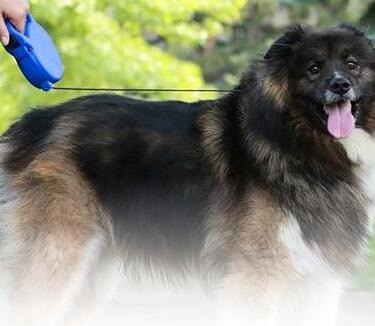
Discover fun and engaging games and other ways to help your dog exercise, keeping him happy and healthy.

Understand the role that Omega-6 and Omega-3 fatty acids play in your dog's overall health, and how you can ensure they are getting enough.
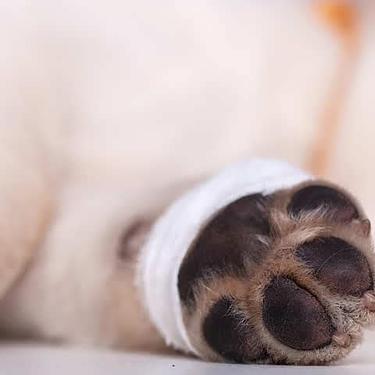
Learn basic steps & precautions for treating a cut on your dog, including what you can put on the cut, and when you should take them to the vet.
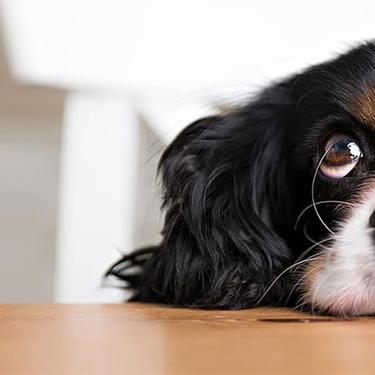
Learn how to stop your dog from begging at the dinner table, and understand how it can help contribute to his health.

Put your dog on a diet without them knowing
Our low calorie formula helps you control your dog's weight. It's packed with high-quality protein for building lean muscles, and made with purposeful ingredients for a flavorful, nutritious meal. Clinically proven antioxidants, Vitamin C+E, help promote a healthy immune system.
Put your dog on a diet without them knowing
Our low calorie formula helps you control your dog's weight. It's packed with high-quality protein for building lean muscles, and made with purposeful ingredients for a flavorful, nutritious meal. Clinically proven antioxidants, Vitamin C+E, help promote a healthy immune system.

